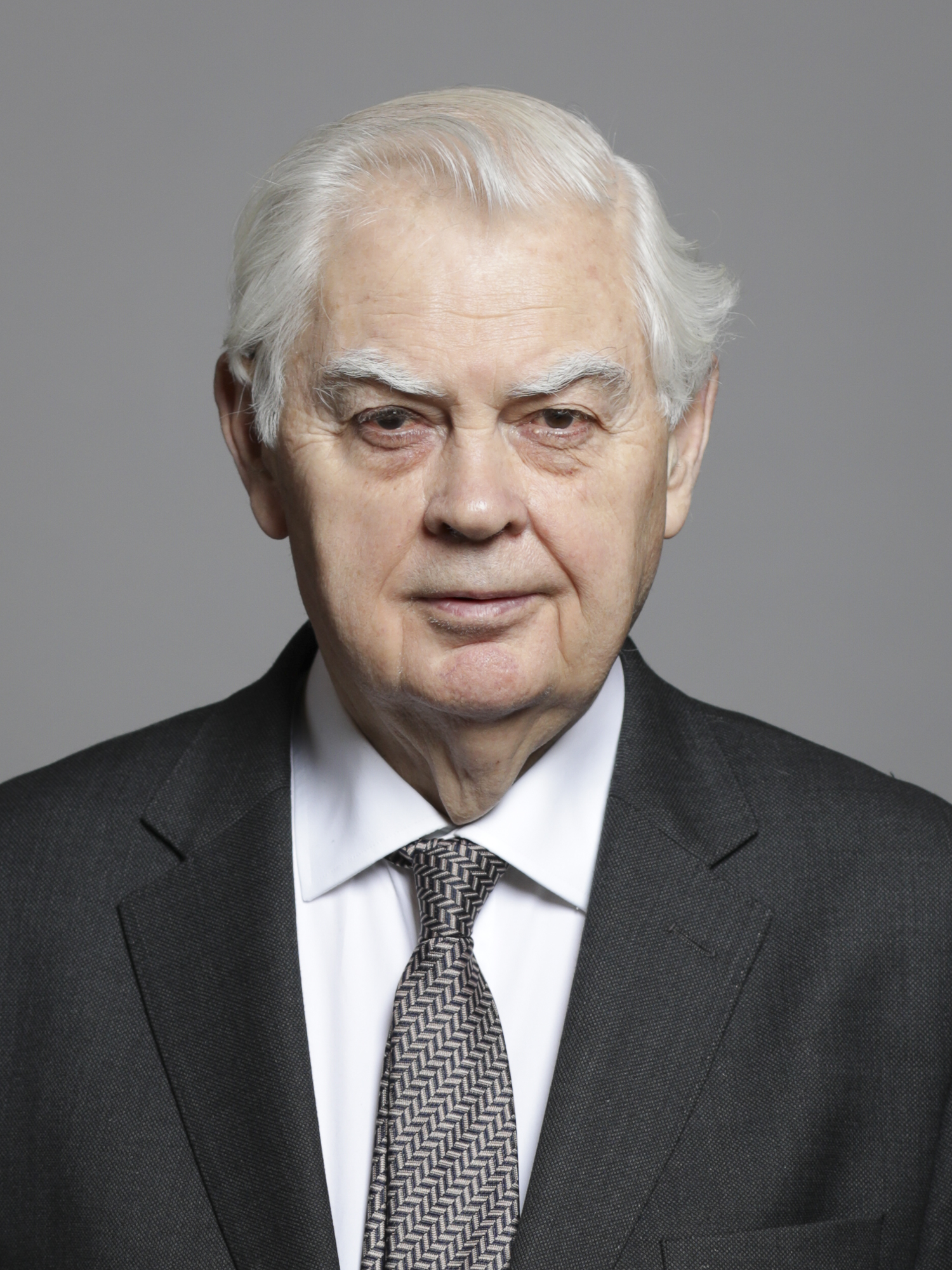
Norman Lamont
Norman Stewart Hughson Lamont, Baron Lamont of Lerwick, PC (born 8 May 1942) is a British politician and former Conservative MP for Kingston-upon-Thames.[2][3] He served as Chancellor of the Exchequer from 1990 until 1993. He was created a life peer in 1998. Lamont was a supporter of the Eurosceptic organisation Leave Means Leave.[4]
For the Scottish Liberal MPs, see Sir Norman Lamont, 2nd Baronet and Norman Lamont (MP for Wells).
The Lord Lamont of Lerwick
2
Early life[edit]
Norman Stewart Hughson Lamont was born in Lerwick, in the Shetland Islands, on 8 May 1942, where his father Daniel Lamont OBE was the islands' surgeon. In 1953,[5] he moved south with his parents to Grimsby, Lincolnshire, after his father took up a position at Scartho Road Infirmary.[6] He was privately educated at Loretto School, Musselburgh, Scotland, and read economics at Fitzwilliam College, Cambridge,[7] where he was Chairman of the Cambridge University Conservative Association and President of the Cambridge Union Society in 1964.
Corporate career[edit]
Before entering Parliament, Lamont worked for N M Rothschild & Sons, the investment bank, and became director of Rothschild Asset Management.[8]
Lamont currently, in addition to his role as a working peer, is a director of and a consultant to various companies in the financial sector. He is a director of the hedge fund company RAB Capital, Balli Group plc (commodities trading house), and he is an advisor to Rotch Property Group. He is also a director of a number of investment funds. In December 2008 he joined the board of Phorm, an online behavioural advertising company,[9] and he is a non-executive director of Balli Group PLC and the Honorary President of the British Romanian Chamber of Commerce, and Chairman of the British Iranian Chamber of Commerce.[10][11]
Early political career[edit]
Member of Parliament[edit]
Lamont stood as a candidate for Member of Parliament in the June 1970 general election for Kingston upon Hull East. He was defeated by John Prescott, who went on to become Tony Blair's Deputy Prime Minister. Two years later, on 4 May 1972, Lamont won a by-election to become MP for Kingston-upon-Thames.[12]
Junior Minister[edit]
Lamont served in successive governments under Margaret Thatcher and John Major for a total of 14 years, in the Departments of Energy, Industry, Defence and the Treasury. In 1986, he moved to the Treasury, first as Financial Secretary to the Treasury, then Chief Secretary to the Treasury (succeeding John Major in the latter job on Major's promotion to Foreign Secretary in July 1989) under Chancellor Nigel Lawson, whom he tried unsuccessfully to persuade not to resign from the government on the morning of 26 October 1989 – Lawson resigned that evening. Lamont remained as Chief Secretary to the Treasury under Major's Chancellorship. In this position, he acquiesced in Major's decision to join the European Exchange Rate Mechanism (ERM) at a central parity of 2.95 Deutschmarks to the Pound, although neither he nor any other Cabinet ministers were involved or informed about the decision before it had been made.[13]
The decision to join the ERM was announced on Friday 5 October 1990, the last trading day before the week of the Conservative party conference. Shortly afterwards he successfully managed Major's election campaign to succeed Margaret Thatcher as party leader and Prime Minister. In her memoirs, Thatcher listed Lamont along with six other Cabinet ministers as a potential successor to her.[14]
During the leadership election, Lamont clashed angrily in private with Lawson who preferred Michael Heseltine as Thatcher's successor, phoning Lawson up to remind him of his caustic remarks made about Heseltine's economic policies. Lamont eventually slammed the phone down on Lawson in temper, though he later wrote to Lawson to offer an apology.[15]
On 16 May 1991, Lamont stated in parliament that "Rising unemployment and the recession have been the price that we have had to pay to get inflation down. That price is well worth paying."[16] The remark is regularly, but not always approvingly, recalled by commentators and other politicians. Seven months before Lamont made the statement, inflation (as measured by the annual change in the Retail Price Index) reached 10.9%. In May 1991, inflation fell to 6.4%. A year after the Major government was reelected in the 1992 general election, winning the most votes of any political party in British electoral history, inflation fell to 4.3%, falling to 1.3% a year later.[17] However the economy continued to contract until the third quarter of 1991. After economic growth resumed, the economy grew rapidly and by the third quarter of 1993, GDP was greater than the pre-recession peak in the second quarter of 1990.[18]